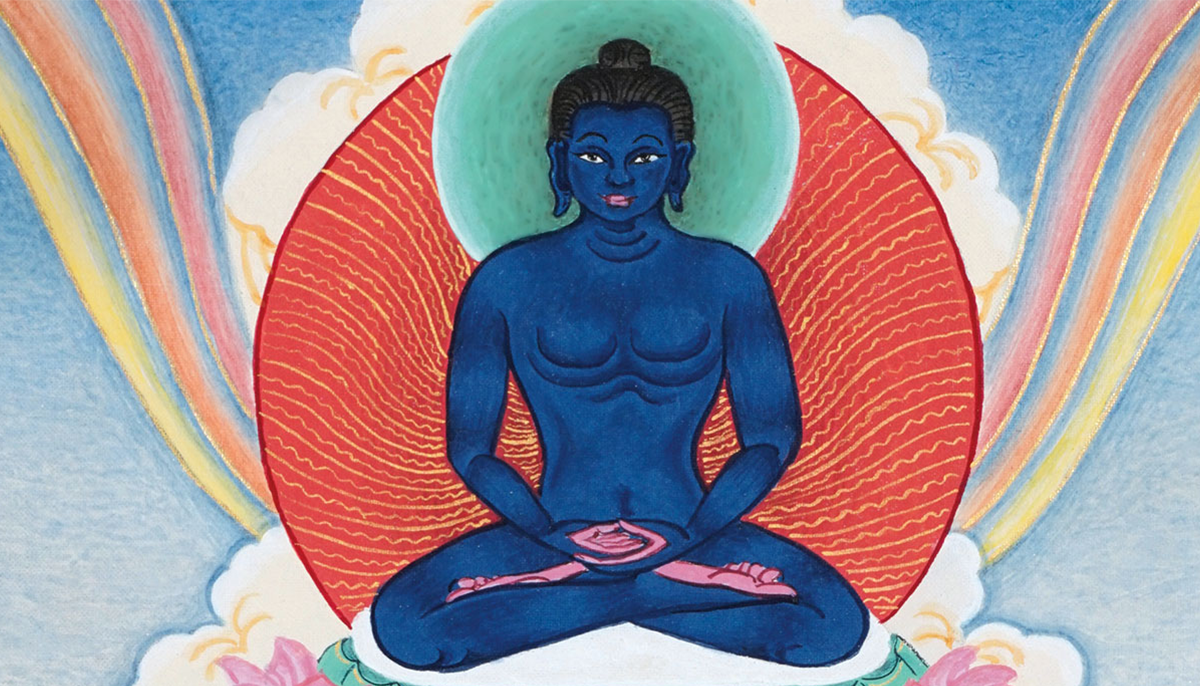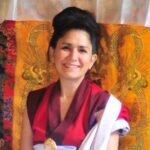The goal of Vajrayana Buddhism, as practiced in the Tibetan tradition, is to realize and identify with the primordial wisdom that is already within us, that is our very being. The important point is that enlightenment is the realization of buddhanature, which is both one’s own innate nature and the fabric of reality itself.
Some of the teachings on realizing buddhanature are framed in metaphors of becoming, like a seed that ripens or butter that is churned from milk. Others use images of something precious that is revealed when obstructions are removed, like a jewel that is discovered when a rock is broken open or a lump of gold in the mud that is uncovered when it rains.
Finally, in teachings such as The Mirror Illuminating the Heart, a collection of fourteenth-century revelations attributed to Padmasambhava and Yeshe Tsogyal, buddhanature is described as the completely awakened, enlightened nature that is the fabric of our being. The path, then, is to recognize what is already there and present.
According to the Great Perfection (Dzogchen) teachings, since beginningless time there has always been the ground wakefulness known as yeshes—primordial knowing. It is beyond karma, yet all the elements and the whole phenomenal world arise because of it. There is no other buddhahood than this primordial wisdom. Yes, there are illusions, but they are temporary. They can be cleared away so that the vast expanse of already enlightened knowing can shine out.
The Mirror Illuminating the Heart says that we should know we are not separate from this enlightened wisdom. It is complete in our body, speech, and mind. The text says, over and over again, “This body is a buddha. You need to keep this in mind.” The field of pure, primordial knowing awaits to be rested in, to be let go into. It can be found in states of effortless clarity or sudden insight.
This view does not deny that human beings live in the tremendous suffering of samsara, assailed by afflictions and crowded by ignorance. Rather, it is more an acknowledgement of how and why that affliction and ignorance take place—temporarily, on the surface, not pervading to the deep recesses of being where there is only light. We experience them as long as we don’t realize the innate, primordial wisdom. This is the ultimate tragedy—in the absence of deep familiarity with our enlightened nature, we resort to afflictions to make sense of our world and lives.
What should we think of all this? Who talks of such things? Aren’t they secret? In the Nyingma lineage, with its famed practice of Dzogchen, we speak of this view quite openly. It carries us from the beginning through the middle to the end of path. Through all the phases of the journey, this view is there as a comfort and encouragement. We do not lose heart, because however much we suffer, there is always buddhanature within us.

